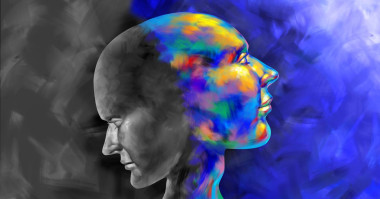Psychedelics can have enormous benefits but risks shouldn't be ignored
The term “psychedelic” was coined by psychiatrist Humphry Osmond: “To fathom Hell or go angelic / Just take a pinch of psychedelic.” But today’s public messaging around psychedelics has a dangerous tendency to gloss over the “fathoming hell” part, which has been euphemized into the language of a “bad” or “challenging” trip.
Challenging trips are generally ones that involve encounters with intense anxiety, unwelcome loss of control, surfaced trauma, or physical discomfort. They’re difficult experiences in the moment, but ultimately, once things settle down, they can be cast in a therapeutic light, and people look back on them as worthwhile.
Then there are just plain bad trips that do not resolve into a harmonious insight, no matter how much therapy, intention, and journaling you throw at them. “Choking, breathless, I was having a grief-tinged cosmic panic attack,” the Harvard theologian Rachael Petersen wrote of her experience in a psilocybin clinical trial. “A small kernel of doubt: a splinter wedged between me and the world … What if terror is just that — terrible, terrifying, absolute?”
The positive sides of psychedelics — therapeutic promise, spiritual renewal, and radical forms of creativity — attract more interest, and more funding, than research into what might go wrong for a minority of users. And to be clear, even outside of the well-controlled settings of clinical trials, the majority of psychedelic trips do seem to lean positive. One recent study that surveyed 613 lifetime psychedelic users drawn from a nationally representative sample found that 82.4 percent reported “never” or “rarely” experiencing bad trips. More than 90 percent reported either no subsequent impairment in their ability to function, or difficulties lasting no more than 24 hours.
